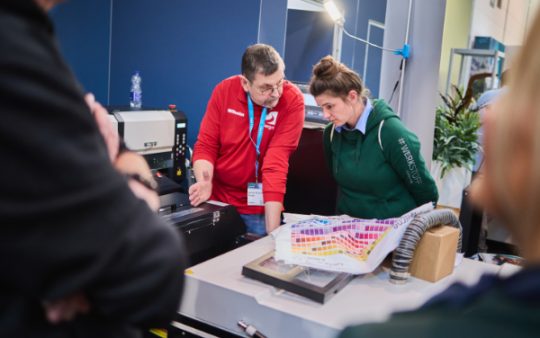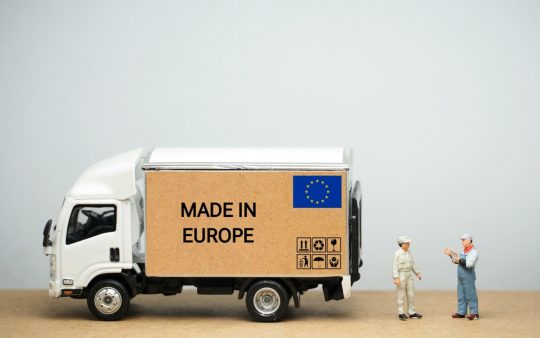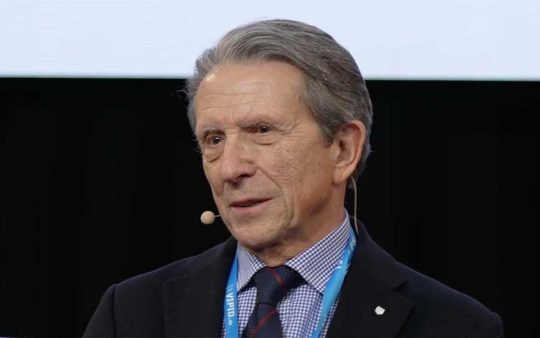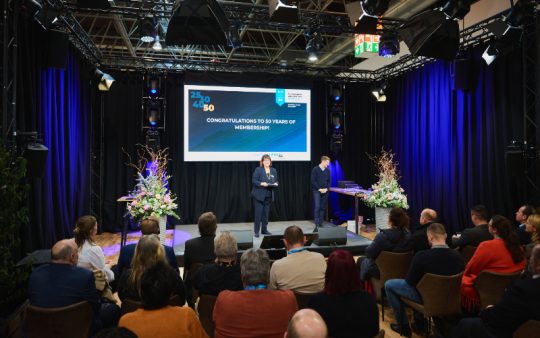15 years of Cotton made in Africa (CmiA): A success story

Published on 17.09.2020
Sustainably produced cotton is very much in vogue. 15 years after the founding of the “Cotton made in Africa” (CmiA) initiative by the then Chairman of the Executive Board of the Otto Group, Prof. Dr. Michael Otto, CmiA cotton is in greater demand than ever before.
The idea behind the initiative is actually quite simple: Instead of donations, the organization wants to use trade to provide “help for self-help” and thus sustainably improve the living conditions of African smallholders and contribute to poverty reduction in sub-Saharan Africa. On the one hand, this is to be achieved through agricultural training for the farmers to increase yields and implement sustainable farming methods. On the other hand, the organization has brought together an international alliance of textile companies that reliably demand the raw material Cotton Made in Africa and pay a license fee for the use of the associated label. This alliance currently consists of 63 retail companies and brands, including Aldi Nord and Süd, the Otto Group, Vlisco, Bestseller, Ernsting’s family, the Rewe Group and Tchibo. The Gesellschaft für internationale Zusammenarbeit (GIZ), the Alliance for Sustainable Textiles, the WWF and the Welthungerhilfe are also on board. The income from the license fees is then reinvested in the project regions of sub-Saharan Africa.
For years the number of textiles that are allowed to advertise with the CmiA label has been growing. In 2019 alone, the number will increase by 20 percent to 125 million pieces. In 2012 there were still 20 million articles. 900,000 smallholders in eleven countries have benefited from the cooperation and were able to offer a total of 593,000 tons of verified sustainable cotton on the world market. Compared to the world production of about 26 million tons of cotton in 2019/20, this seems little, but in relation to Africa, CmiA cotton now covers about a quarter of the total production. In the textile value chain, CmiA also recorded an expansion in 2019. The network of registered partners increased worldwide by 61 percent to 137 spinning mills and textile producers in 22 countries.
“2019 was the year in which a major global movement to save the climate and protect the environment was formed, and politicians and society worldwide were stirred up,” says initiator Prof. Dr. Michael Otto. “This gives us confidence for the future and strengthens my conviction that it is not the people who are there for the economy, but the economy for the people.
The good sales figures are important for the organization, which is almost completely self-financing and aims for further growth in the future. They are also currently helping to implement protective measures against the spread of COVID-19 in Africa. For example, CmiA’s umbrella organization, the Aid by Trade Foundation, has been able to provide financial support to the partner cotton companies in Africa and to make available information material on infection risks and hygiene measures. By the end of June 2020, just under EUR 33,000 had been called up from the cotton companies for emergency aid measures.
Photo: CmiA / Martin J. Kielmann














